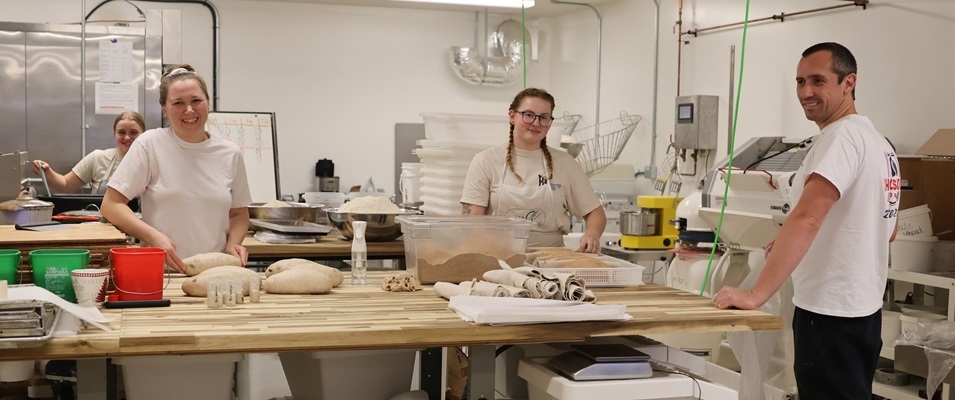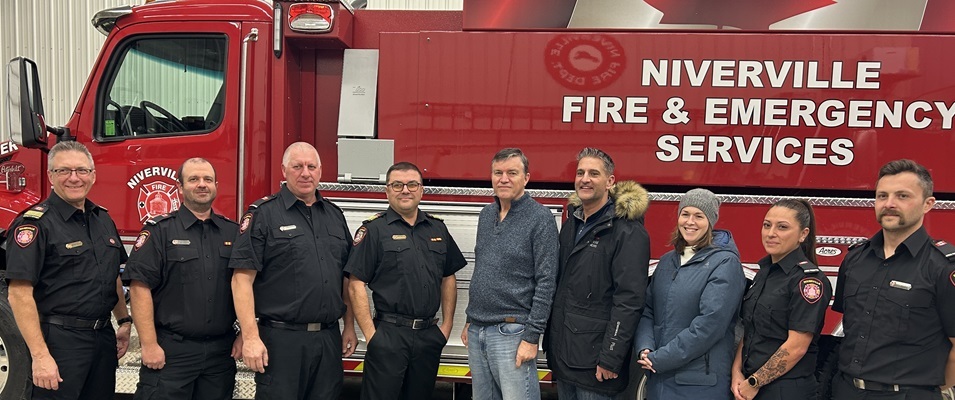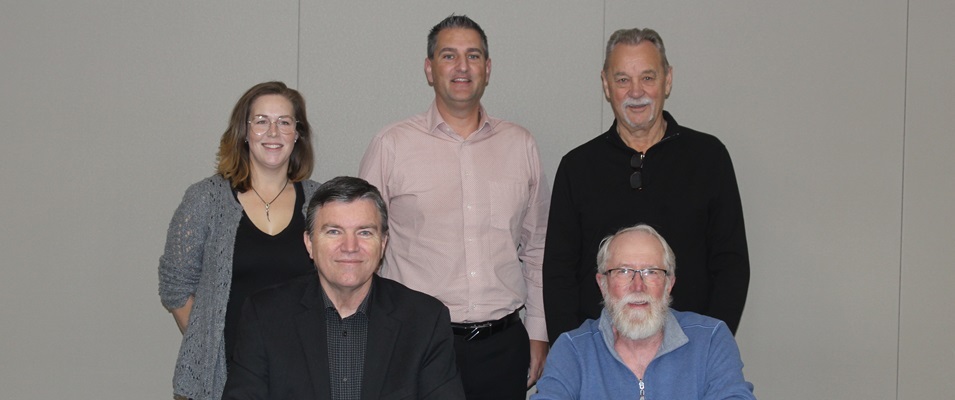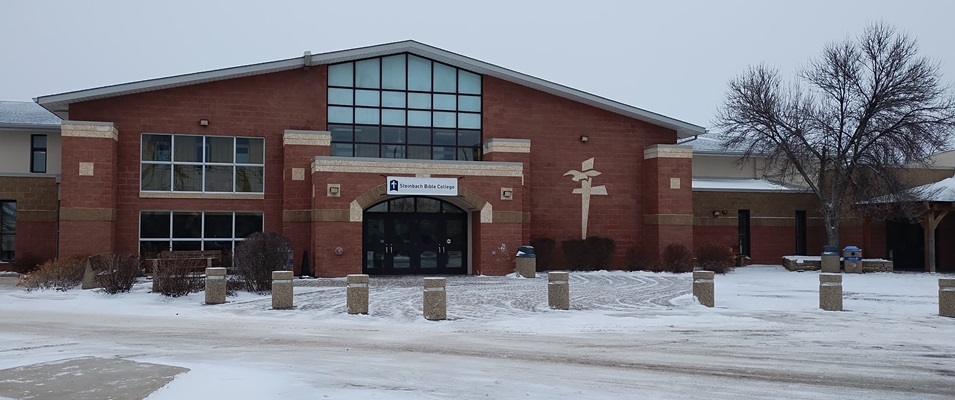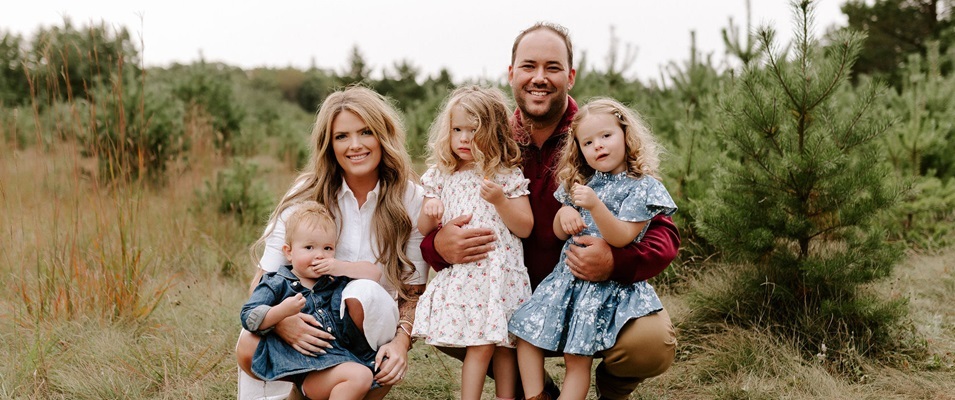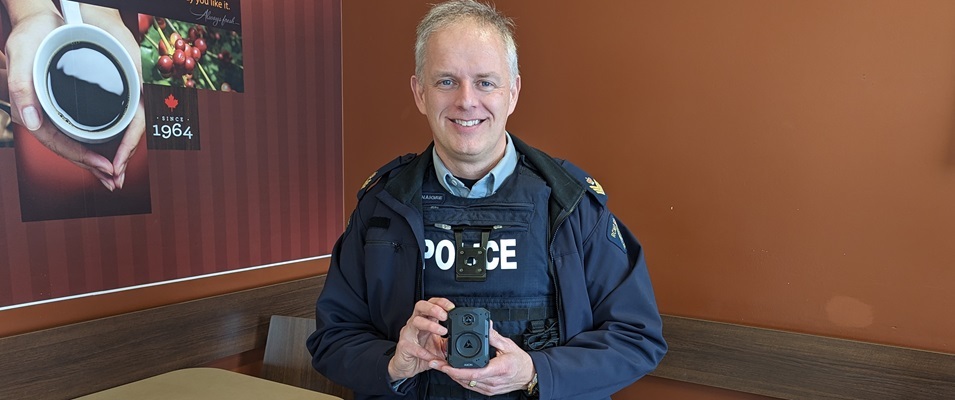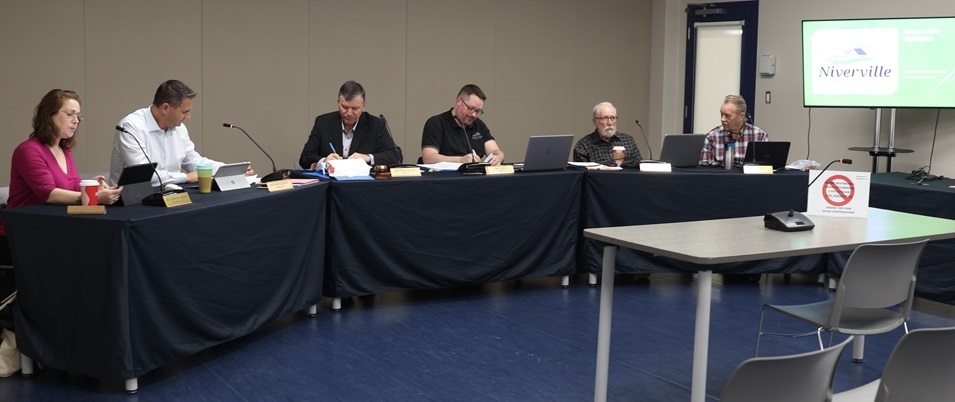
The fair trade of goods or services for profit is something most Canadians take for granted. Our government sets minimum wage standards for employees, and industry standards allow business owners to make an honest gain on their investment.
In many countries, though, this is not the case. Currently, 1.4 billion people live below the international poverty line around the globe. Many of these are women and children who subsist on the meagre profits earned from their handcrafted wares.
“For the past ten years we have been facilitating Fair Trade Festival Sales for Ten Thousand Villages (TTV) at Niverville Collegiate Institute (NCI), and for the past two years at Green Valley School in Grunthal,” say Hank and Marie Dueck of Niverville. “We are hoping to visit at least one additional school this year.”
The Duecks, longtime supporters of the work of Mennonite Central Committee (MCC) and their TTV stores, were drawn to TTV’s Festival Sales idea as a way to make a difference in the lives of those living in poverty around the world. The other half of their twofold mission is to create awareness among local youth of the disparity in world wealth distribution and demonstrate to them that there is something they can do, now and throughout their lives, to help manifest positive change in the world.
“TTV has been our mission of choice because Festival Sales like ours are an extension of the TTV stores in Winnipeg and Steinbach,” the Duecks say. “We support the principles of fair trade with our personal purchases and hope to share this vision with our community.”
Fair trade is the practice of benefiting producers in the developing world by buying directly from them at a guaranteed and fair price, a price that allows them to support their families and hopefully pull them out of poverty. The process also helps instill pride in workmanship and in self-sustainability.
Edna Ruth Byler was one of the early proponents of fair trade. In 1946, while in Puerto Rico, Byler saw the many village women producing beautiful handcrafted wares without a greater market in which to sell them. She purchased their wares at a fair price and brought them to North America, selling them from the trunk of her car.
MCC saw the potential for her idea and began opening new markets for artisans through direct trading relationships. In 1972, TTV opened its first store. Today, they are one of the largest and most experienced fair trade dealers in the world and have built long-term relationships with over 120 artisan groups (20,000 individual artisans) in 38 countries. Unlike many North American chain stores, which negotiate with foreign manufacturers for the lowest price, MCC allows the artisans to name their own price, thus ensuring their livelihood into the future.
As a non-profit organization, MCC reinvests their profits back into the organization, resulting in continuing benefits for developing countries by way of education for children, empowerment for the marginalized, community development, and expanding leadership and employment opportunities, especially for women. Women make up 70 percent of MCC’s select artisans.
“The purpose of [bringing] these festivals [to schools] has been to educate students, staff, and parents regarding principles of fair trade as well as to provide an opportunity to ‘give twice’ at Christmas,” the Duecks say. “Every purchase made at a Fair Trade Festival Sale, like the one at NCI, provides students with an opportunity to participate in this mission.”
The Festival Sale at NCI will take place from December 6–8 in the school library. Marie Dueck will be making classroom visits, presenting a short MCC video, and opening the floor to discussion. Fair trade samples will be handed out and the students will have an opportunity to visit the store and create gift-giving lists, returning later to purchase their gifts.
“The response from the NCI community has been overwhelming,” the Duecks say. “Students really get the notion of fair trade. The [Festival Sale] has become a real favourite at NCI as students eagerly anticipate doing their Christmas shopping here every year.”
Festival Sales across Canada result in about $1 million in sales every year. As the TTV website states, “Ten Thousand Villages is more than a store. It’s a place where you can explore and connect with your global village. We offer a way for you to become part of the story, to shop your values, and give gifts with meaning. Because this is bigger than us.”





